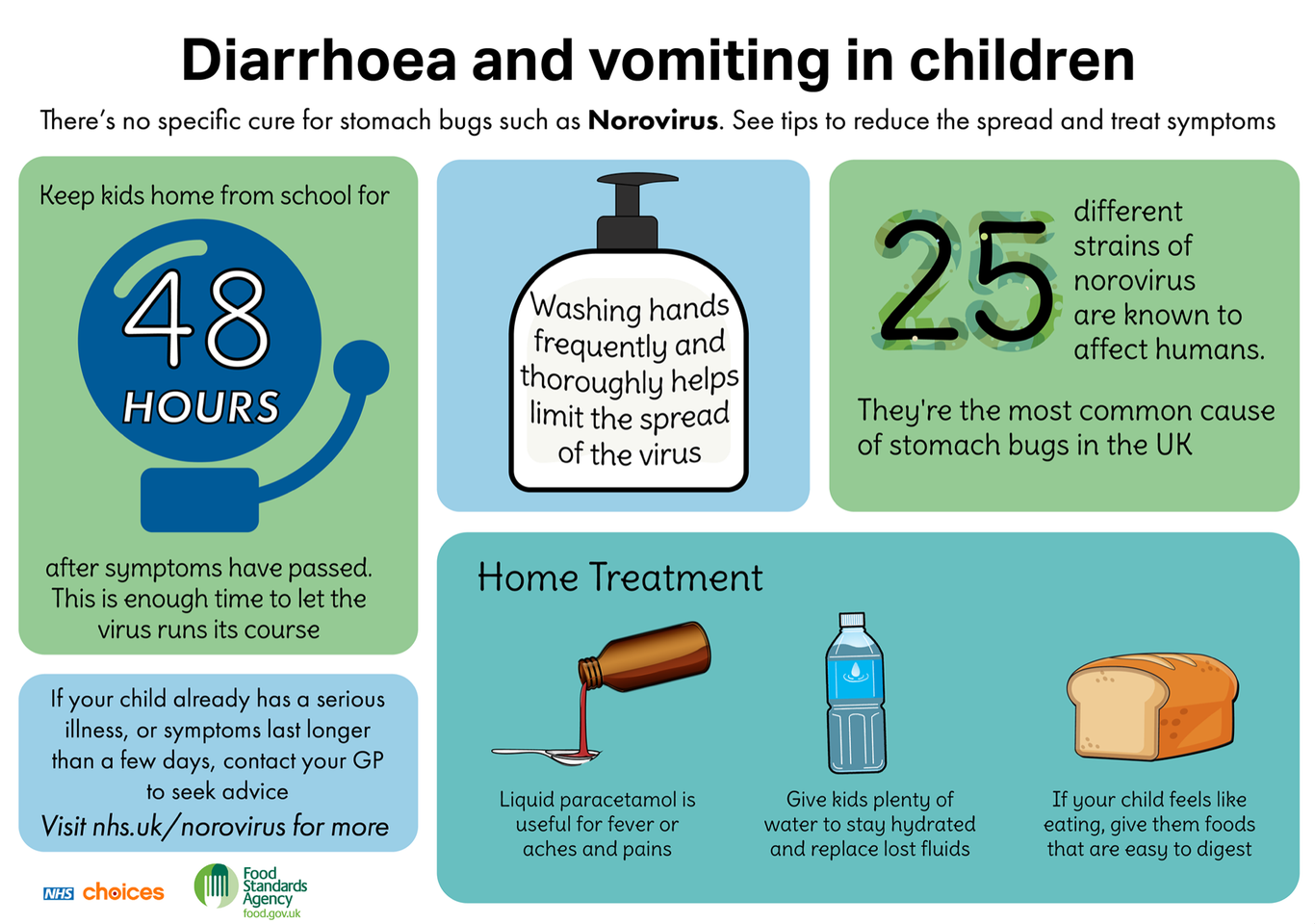The Tots' Clubhouse Nursery School Norovirus Policy
Norovirus Policy
Norovirus
Norovirus is the biggest cause of viral gastroenteritis and can easily be passed to other people.
For most people, it’s an unpleasant and short-lived illness, but if your child is showing symptoms of the vomiting bug then it’s important to keep them at home until 48 hours after the symptoms have stopped to stop the spread of the virus.
Any child who vomits in the car on arrival, at the entrance to the setting, within the setting or outdoor area, will be immediately isolated from the other children and catered for by a dedicated member of staff. Parents/carers/guardians will be informed immediately and the child will be collected to return home.
The vomit will be treated as a bio hazard and removed from the setting. Cleaning will commence and any indoor space will be aired immediately.
Where there are three children who vomit within a session, the Nursery School will inform parents/carers/guardians of any intention to close. The Director reserves the right to close the Nursery School at short notice due to any outbreak of vomiting condition.
Cases of uncontrollable diarrhoea will also be monitored in the same manner.
Where diarrhoea and vomiting occurs across our staff, the Director reserves the right to close the Nursery School at short notice to prevent the spread of any virus. Where safe staff ratios can not be maintained due to staff absences, parents/carers/guardians will be informed of any intention to close.
Outbreaks of diarrhoea and vomiting will be monitored to ensure that that there is no confusion about the source of the concern. If an outbreak is identified as not being virus related and can be linked to two cases of food poisoning, this will be reported to Ofsted and the Local Authority.
What is norovirus?
Norovirus, commonly known as a vomiting bug, is a stomach bug that causes sickness and diarrhoea.
Norovirus can spread easily through communities and so outbreaks are common in settings where people have close contact, such as schools and nurseries.
For most, this is an unpleasant, short-lived illness with a full recovery within two to three days without needing any medicine. However, children should not attend school or nursery until 48 hours after the symptoms have stopped.
It’s worth noting that some groups, including young children and babies, are at risk of suffering more serious and prolonged symptoms, which may require medical treatment.
How can we help stop norovirus spreading?
Good hand hygiene is important to stop norovirus spreading.
To avoid catching norovirus or passing it on to others, children should wash their hands frequently and thoroughly with soap and warm water.
Norovirus is easily transmitted through contact with people with the infection and any surfaces or objects which have been contaminated with the virus.
You are reminded that alcoholic hand gels are not effective against this virus. Only thorough hand washing is good enough.
How long is norovirus contagious?
The incubation period of norovirus is 12 to 48 hours, which is the time between catching the virus and developing symptoms.
Children are most infectious when symptomatic, but it is possible to pass on norovirus both before developing symptoms and after symptoms have stopped. This is why children should not attend school or nursery until 48 hours after the symptoms have stopped.
Alcohol-based hand sanitisers are not effective against norovirus.
My child has sickness and/or diarrhoea and may have norovirus – what should I do?
Do not send child to school or nursery until 48 hours after the symptoms have stopped and avoid visiting your GP or hospital while symptomatic unless advised otherwise.
Those with symptoms should avoid cooking and helping prepare meals for others until 48 hours after symptoms have stopped, as norovirus can be spread through contaminated food when it is handled by people with the illness.
Vomiting and diarrhoea causes your child’s body to lose water and salts, which can lead to dehydration, so it is important that they drink plenty of fluids to prevent this.
Dated: 12 September 2024 Review date: December 2025


